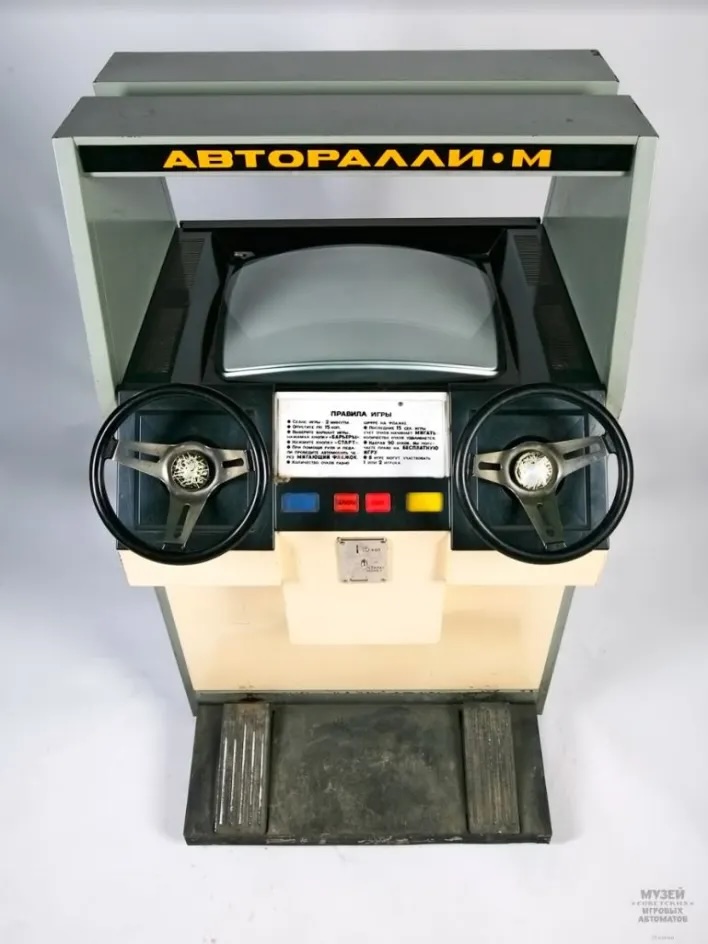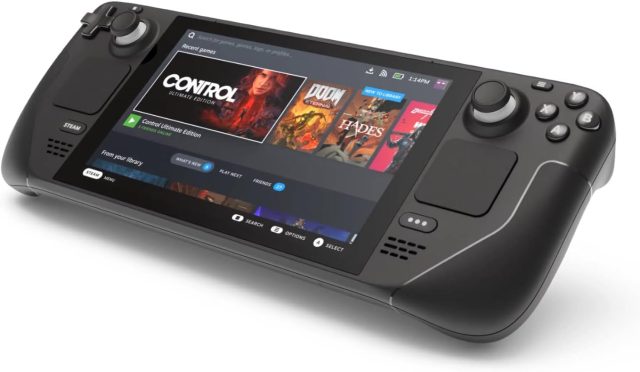
Enlarge / A Cold War-era arcade cabinet that serves as an example of what happened the last time Russia was forced to create a home-grown video game market.
It’s been over two years since major players in the international game industry united to largely cut off the Russian market in response to a request from a beleaguered Ukraine. The relative isolation has apparently forced Vladimir Putin’s government to contemplate the kind of homegrown gaming hardware and software that characterized Cold War gaming behind the Iron Curtain.
PC Gamer brings word of a series of recently approved Russian economic orders from the Kremlin. Amid talk of airport and museum funding, ocean shipping, and road construction is the somewhat bewildering instruction for the government to (machine translation):
consider the issue of organizing the production of stationary and portable game consoles and game consoles, as well as the creation of an operating system and a cloud system for delivering games and programs to users
Oh, is that all?
A massive undertaking
Gaming technology isn’t a completely new area of focus for the Russian government. In 2022, the Ministry of Digital Development reportedly started discussing the possibility of creating a homegrown domestic Russian game engine. But building an entire gaming platform from scratch would be an even bigger undertaking.
To be fair, building your own game console today is a bit easier than it would have been in a different era. Open source platforms like Android can provide a good starting point for a bespoke gaming operating system (it worked for Ouya, kind of), while off-the-shelf, system-on-a-chip solutions can save a lot of the hardware engineering work needed to develop a new console.
But even if those issues get “solved,” the Russian government would still have to build the other scaffolding that supports a robust gaming platform. Crafting features like payment processing, game downloads, online play, moderation, quality control, and more is not a simple undertaking, even for major conglomerates like Microsoft or Valve. And that’s before you get into attracting the developers that would need to create the actual games for this new platform.

Enlarge / Building a bare-bones Steam Deck competitor isn’t nearly as hard as building out the platform that supports that hardware.
Valve
Speaking to Russian-language newspaper Kommersant, Anton Fomin, the head of retail projects for mobile phone company Fplus, said, “In Russia, no one has the expertise that would allow them to produce their own PlayStation or Xbox-level console” (according to a machine translation). An unnamed expert source also told Kommersant that creating a full system would take Russia 5 to 10 years and 5 to 10 billion rubles ($54 to $108 million) just to get a gaming platform that would “lag behind already existing foreign solutions in terms of parameters by 10 to 15 years.”
The fact that Russia is even contemplating this kind of move might reflect the wider state of the country’s gaming sector. A 2023 survey found a significant majority of Russian gamers resorting to piracy for their gaming fix as legitimate access to foreign games dwindled. Russian job listing data from last year also suggests that Russia’s domestic game development has withered by up to 40 percent since the start of the Ukraine war.
But this isn’t the first time Russia has been forced to bootstrap its own homegrown gaming industry. In the waning days of the Cold War, Soviet engineers cut off from the Western gaming market created a variety of odd knock-off arcade machines and hundreds of amateur computer games, including many with surprisingly activist themes. If that era of Russian gaming could create something like Tetris, maybe the idea of a new Russian gaming platform isn’t completely ridiculous.
The Russian government has until June 15 to make its recommendations about the feasibility of any domestic game console creation plans.